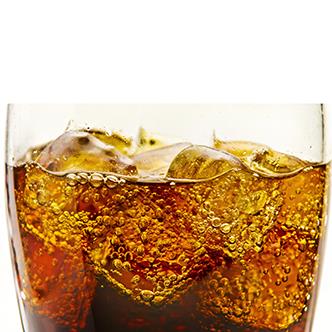
Women who drank one or more sugary beverages a day were also more likely to develop heart disease, suffer a stroke or need a procedure to open blockages in their heart’s arteries, according to new research published in the Journal of the American Heart Association. This association remained even after accounting for other factors known to increase the risk of cardiovascular disease.
In fact, drinking just one or more of these sugar-laden beverages each day was associated with a nearly 20% greater likelihood of having cardiovascular disease, when compared with women who rarely or never consume them. Interestingly, it seems that not
all sugary drinks are equal. Women who consumed fruit drinks with added sugar had a 42% greater likelihood of experiencing cardiovascular disease compared with those who didn't drink sugary beverages, while soda drinkers had a 23% bump in their risk
of cardiovascular disease. Data also revealed that women who consumed these drinks daily had a 26% greater risk of having a revascularization procedure to open clogged arteries compared with women who didn’t drink them.
Experts believe that sugar-filled beverages may heighten the risk of heart and blood vessel disease in several ways. For example, drinking them can raise levels of sugar and insulin in the blood that can increase one’s appetite, and promote weight
gain and obesity. In addition, high levels of sugar in the blood can also trigger inflammation, insulin resistance, high cholesterol and diabetes, all of which can damage and narrow blood vessels.
The new data come from a large, ongoing study of over 106,000 female teachers (called the California Teachers Study) whose average age was 52. None had heart disease, previous stroke or diabetes when they were enrolled in 1995. A food questionnaire was
used to estimate how often they drank sweetened beverages, which were defined as non-diet soft drinks, sweetened bottled waters or tea, sport drinks and sugar-added juices. Hospital records were then used to determine whether these women had a heart
attack, stroke or surgery to open clogged arteries. During the 20 years of follow-up, there were 2,677 heart attacks, 5,258 strokes and 2,889 procedures to open blocked arteries.
Among all participants, 4.2% reported drinking sugar sweetened beverages daily, whereas about 41% said they rarely or never consumer them. Women who reported the highest intake of sugary beverages also tended to be younger, less likely to make healthy
food choices and more likely to smoke and be obese.
Even though this study is observational and can’t prove that sugary drinks lead to higher rates of cardiovascular disease, the relationship is striking. According to the researchers, sugar-sweetened beverages account for nearly half of all added
sugars consumer in the average American diet. Based on these trends and the study results, lowering the intake of such drinks by replacing them with water or other more healthful options could help lower cardiovascular risks in a sizable proportion
of the population.
The authors share that this study adds to growing research about the unfavorable effects of sugar-sweetened drinks. They write, “Our findings support clinical and public health efforts to reduce sugar-sweetened beverage intake as a means to promote
cardiovascular health.”
Unlike previous studies that examined the intake of sugar-sweetened beverages and cardiovascular disease, researchers said this study is among the largest with extensive follow-up and was designed to be able to track new cases of heart disease and stroke.
For more information, visit CardioSmart.org/Prevention.